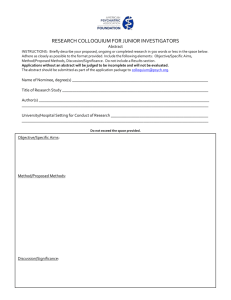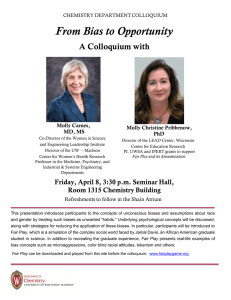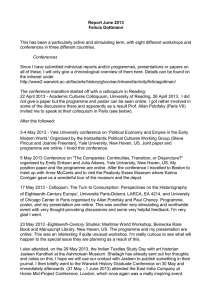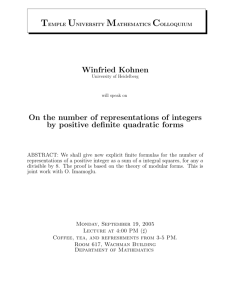– Colloquium report Reform and Reformation
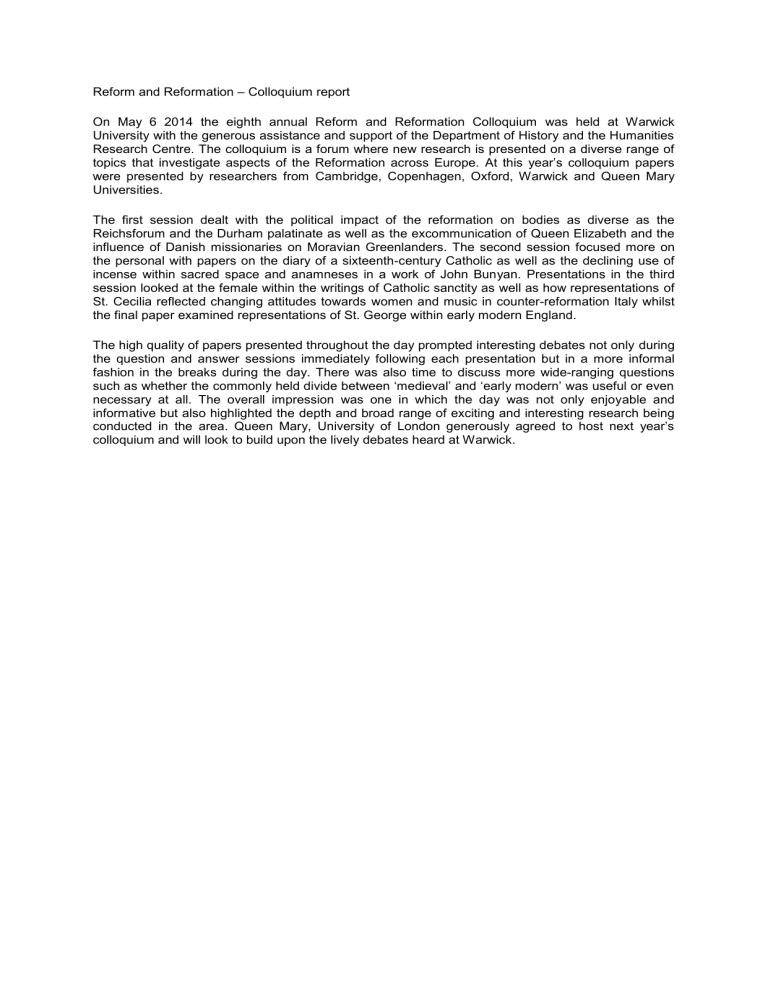
Reform and Reformation – Colloquium report
On May 6 2014 the eighth annual Reform and Reformation Colloquium was held at Warwick
University with the generous assistance and support of the Department of History and the Humanities
Research Centre. The colloquium is a forum where new research is presented on a diverse range of topics that investigate aspects of the Reformation across Europe. At this year’s colloquium papers were presented by researchers from Cambridge, Copenhagen, Oxford, Warwick and Queen Mary
Universities.
The first session dealt with the political impact of the reformation on bodies as diverse as the
Reichsforum and the Durham palatinate as well as the excommunication of Queen Elizabeth and the influence of Danish missionaries on Moravian Greenlanders. The second session focused more on the personal with papers on the diary of a sixteenth-century Catholic as well as the declining use of incense within sacred space and anamneses in a work of John Bunyan. Presentations in the third session looked at the female within the writings of Catholic sanctity as well as how representations of
St. Cecilia reflected changing attitudes towards women and music in counter-reformation Italy whilst the final paper examined representations of St. George within early modern England.
The high quality of papers presented throughout the day prompted interesting debates not only during the question and answer sessions immediately following each presentation but in a more informal fashion in the breaks during the day. There was also time to discuss more wide-ranging questions such as whether the commonly held divide between ‘medieval’ and ‘early modern’ was useful or even necessary at all. The overall impression was one in which the day was not only enjoyable and informative but also highlighted the depth and broad range of exciting and interesting research being conducted in the area . Queen Mary, University of London generously agreed to host next year’s colloquium and will look to build upon the lively debates heard at Warwick.
